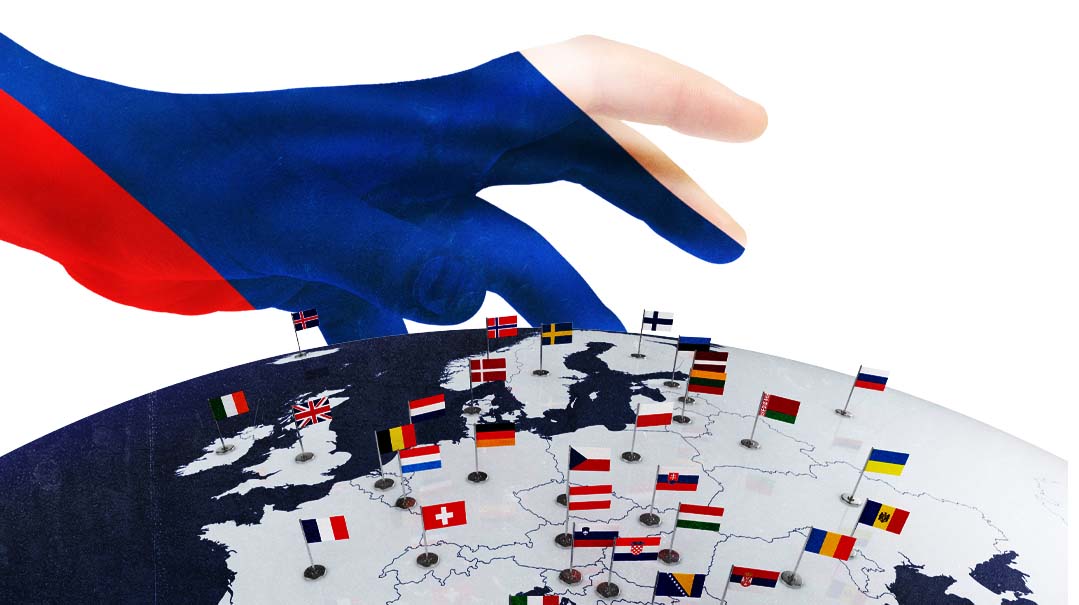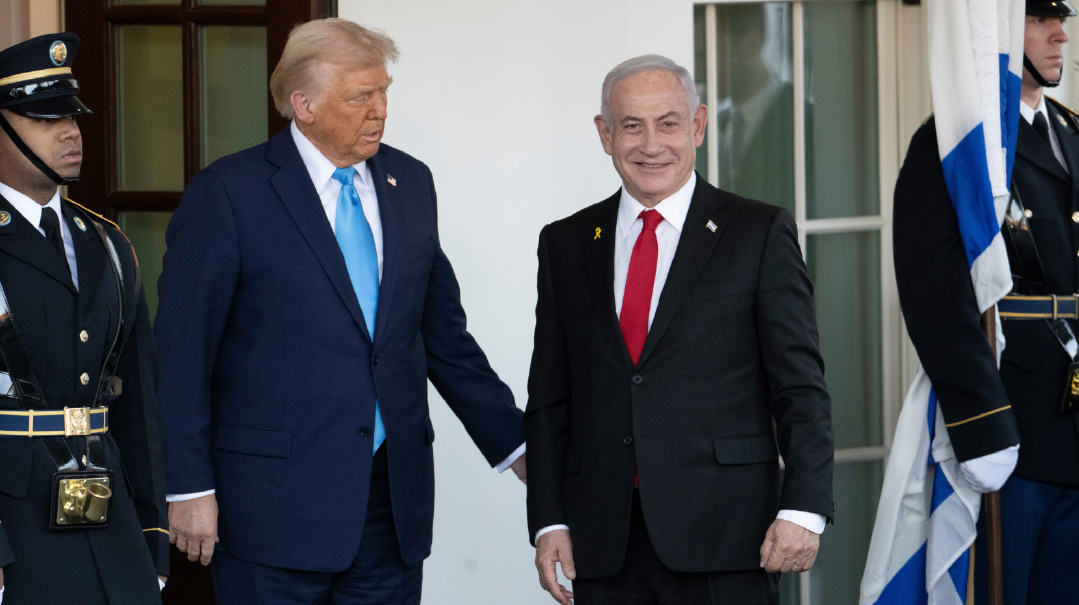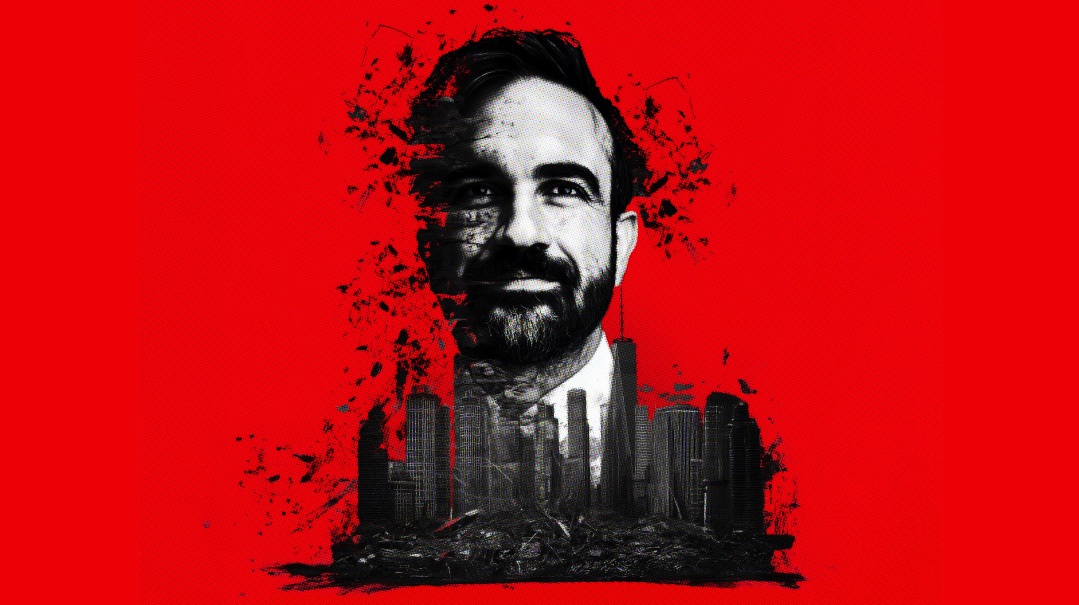Putin Jumbles the Chess Board

"It is not at all too late. Everyone understands that Russia can capture Kyiv — but then what?"

Vladimir Putin has smashed the certainties of the post-Cold War era — is Europe now at his mercy?
In 1998, New York Times columnist Thomas Friedman advanced the “Golden Arches Theory of Conflict Prevention.” Put simply, the theory posited that war is impossible between two countries that have McDonald’s restaurants, the point being that as capitalism and globalization spread across the world, nations have less and less motivation to go to war. While the theory’s basic assumption is not strictly accurate — there were McDonald’s restaurants in the Balkans, which saw a bloody ethnic war in the ’90s — Friedman’s theory seems perfectly sound in principle. After all, living standards have improved dramatically since the ’90s, and the idea of war in Europe feels like a distant memory.
Not anymore.
Putin’s invasion of Ukraine has left the world stunned and outraged, more than anything by its sheer brazenness. The Russian attack was unprovoked and unjustified, with only the flimsiest of pretexts to veil its aggression. The United States’ response has met with mixed reactions. Some think the United States could have been more forceful and aggressive, while many experts believe the American response was optimal, as Putin had already made up his mind to invade in spite of sanctions, and one or two more wouldn’t have deterred him.
But that already belongs to the past. A much more important question is what’s next, what Ukraine’s and Europe’s futures will look like in the aftermath of the invasion. The Baltic countries are already wondering if they’ll be next and whether the United States will be there to protect them.
Professor Benjamin Jensen of the Marine Corps University’s School of Advanced Warfighting (SAW) told Mishpacha that it’s “very premature” to talk about the fall of Ukraine.
“Shift the question — what is the future of Russia under Putin if his gamble fails in Ukraine? How will the EU and NATO build inroads with Russian leaders beyond Putin?” he said.
Jensen pointed to two factors that weigh heavily in Kiev’s favor. “Ukrainian will to fight and political unrest in Russia,” he said. “Look at the first day of the war. There was a 10:1 ratio. For every one Ukrainian soldier that died, ten Russian protesters were arrested at anti-war protests.”
Elliott Abrams, senior fellow for Middle Eastern studies at the Council on Foreign Relations and former US deputy national security advisor, said he trusts the Biden administration to handle the crisis.
“The US is committed to the security of the Baltics, and Biden has properly been reinforcing our troops presence there,” he said. “His commitment to NATO is clear, as it has been throughout his career. I would worry more about the nonmembers, such as Ukraine and Belarus. The issue for Biden and NATO now will be how much to build or support an insurgency inside Ukraine.”
Despite Russian advances, Abrams said Ukrainian resistance can still be effective.
“It is not at all too late,” he said. “Everyone understands that Russia can capture Kyiv — but then what? A big insurgency — which the Russians last faced in Afghanistan — could exact a high and continuing price for their invasion and affect Putin’s popularity at home.”
Dov Zakheim, senior advisor at the Center for Strategic and International Studies (CSIS) and former undersecretary of defense, said the Russian invasion will have disparate impacts on EU security.
“Initially, militarily, it won’t make much difference, although the Poles and Baltic states will be even more concerned, as will the Swedes and Finns,” he said. “But all of them are improving their defenses, and Washington is upping its military presence in Eastern Europe, which should help deter Russia.
“Economically is a different matter,” he went on. “If tougher sanctions really do get imposed (and countries are already seeking exemptions), that could hurt the EU, especially as it has also begun to take a stronger economic line against China. Also, for those EU states that are either NATO members, or, like Sweden and Finland, NATO partners, the Ukraine war will create pressure for more defense spending, which will also affect economic performance.”
Zakheim has no doubt that Putin has his eyes on the Baltic republics — but doubts he will take the risk. “Of course he does, but if America comes through with significantly more presence in Eastern Europe, Putin will hesitate to act against those states. Moldova is an easier target for him — not a NATO member, and he already has Transnistria.”
Zakheim said the scenario of the US supporting an armed resurgence in western Ukraine is plausible — but not necessarily practical.
“There will be pressure for America to do so, but the East Europeans may seek to prevent this, because they are more vulnerable to Russian retaliation, and Putin will threaten them by saying they are all in with the United States,” he said. “And in truth, it would be hard for America to do so on its own… How would the support get to the insurgents if not from a country that borders Russia?”
William Pomeranz, acting director of the Kennan Institute, a part of the Woodrow Wilson International Center for Scholars located in Washington, D.C., said it’s still difficult to assess the strength of the Ukrainian resistance or how many casualties it can inflict on the invading Russian army.
“That will have a significant impact on Russia’s future engagement with Europe and whether it wants to go beyond Ukraine,” he said. “In many ways, Ukraine is the most vulnerable country in Europe. It is not a part of NATO, and therefore does not enjoy the Article 5 defense guarantees. Ukraine also is perceived as vital to Russia’s superpower status, with historic ties that (in Vladimir Putin’s eyes) still makes it an integral part of Russia. If Ukraine falls, however, the post-Cold War security architecture in Europe invariably will have to be reexamined and reinvented. Whether Putin wants to directly challenge a NATO-member country, however, remains to be seen.”
In his address to the nation last Thursday Biden made clear that he would send additional troops to reinforce the Baltic countries and that Putin would have to tangle with American forces if he tried to invade them. But the Baltic countries remember the Obama administration’s “line in the sand” with Syria, as well as the toothless sanctions that followed Russia’s occupation of the Crimean Peninsula, and realize that if Ukraine falls, their position will worsen considerably.
This is not good news for a continent that for decades prided itself on prosperity, stability, and peace but can now only look on helplessly as yet another wave of refugees streams toward the EU.
The West, it seems, will have to shelve the Golden Arches theory and begin contemplating what it will take to win another Cold War.
(Originally featured in Mishpacha, Issue 901)
Oops! We could not locate your form.






